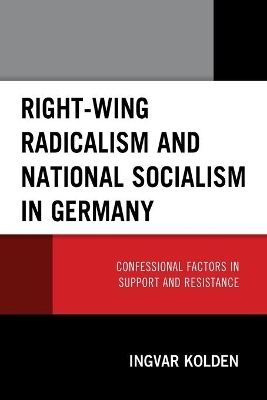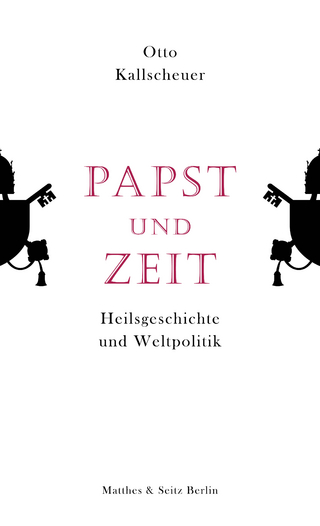Right-Wing Radicalism and National Socialism in Germany
Confessional Factors in Support and Resistance
Seiten
2021
Rowman & Littlefield (Verlag)
978-1-9787-1041-2 (ISBN)
Rowman & Littlefield (Verlag)
978-1-9787-1041-2 (ISBN)
This book explores the total resistance to Nazism among the Catholic Christian voters of the Zentrum party in the elections in German states in the Interwar period. Kolden explains the unique Catholic resistance by comparing the diverging evolutions of Catholic and Protestant cultures and mentalities since the awakening of German nationalism in the late 18th century. During the Empire (1871–1918) both socialists and Catholics were regarded as pariah groups by the dominant non-socialist Protestant majority, and more so after the WW1 defeat, when the pariah-parties, together with Protestant liberals, tried to accommodate the new democratic circumstances with their Weimar Constitution. When right-wing radicals, and eventually the Nazis, increased their support —largely on behalf of the rapid shrinking number of liberals—the Catholic church leaders showed a stubborn stance against the rightists, issuing several resolutions of condemnation from the middle of the 1920s until 1933, whereas no such appeared from their Protestant counterparts. In contrast, many local Protestant clergymen agitated for the Nazi party. The anti-Catholic sentiment, which had been obvious among some Nazis in the 1920s, was intensified with the publication of Alfred Rosenbergs The Myth of the 20th Century after the election in 1930, which enhanced the antagonism. The basic and profound difference in Catholic and Protestant cultures also appears in the difference between the less Christian-profiled agrarian parties, which were confessionally separated: antisemitic and right-wing radical Protestant parties confronted by one left-wing and democratic Catholic party. By1945 the bulk of the former rightist Protestants sided with the Catholics, who reorganized their party to the non-denominational CDU, which has been the mightiest proponent in Europe of the former party's ambitions of democracy, stability, anti-racism, human rights, and European unity.
Ingvar Kolden retired in 2017 after 37 years as a senior high school teacher.
Abbreviations
Preface
Introduction
Chronological-Thematic Part
Chapter One. The Pre-1914 Breeding Ground
Chapter Two. The Heritage of World War I Versus the Values of 1789
Chapter Three. The Postwar Period: Change of Mentality among Protestants
Thematic Part
Chapter Four. Other Denominations and Nazism
Chapter Five. Agrarian Parties and Confessional Differences
Chapter Six. Women and Nazism
Chapter Seven. Christian Youth Associations and Nazism
Chapter Eight. The Relationship of Pius Xi to Totalitarianism
Chapter Nine. Conclusions as to Differences of Mentality among the Confessions
Defining of Terms
References
About the Author
| Erscheinungsdatum | 10.05.2021 |
|---|---|
| Verlagsort | Lanham, MD |
| Sprache | englisch |
| Maße | 151 x 218 mm |
| Gewicht | 445 g |
| Themenwelt | Geisteswissenschaften ► Geschichte ► Regional- / Ländergeschichte |
| Geschichte ► Teilgebiete der Geschichte ► Religionsgeschichte | |
| Religion / Theologie ► Christentum ► Kirchengeschichte | |
| ISBN-10 | 1-9787-1041-0 / 1978710410 |
| ISBN-13 | 978-1-9787-1041-2 / 9781978710412 |
| Zustand | Neuware |
| Haben Sie eine Frage zum Produkt? |
Mehr entdecken
aus dem Bereich
aus dem Bereich
Von den Anfängen bis zur Gegenwart
Buch | Hardcover (2022)
C.H.Beck (Verlag)
34,00 €
Herkunft, Blüte, Weg nach Osten
Buch | Hardcover (2024)
C.H.Beck (Verlag)
39,00 €
Heilsgeschichte und Weltpolitik
Buch | Hardcover (2024)
Matthes & Seitz (Verlag)
44,00 €




